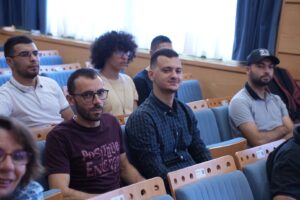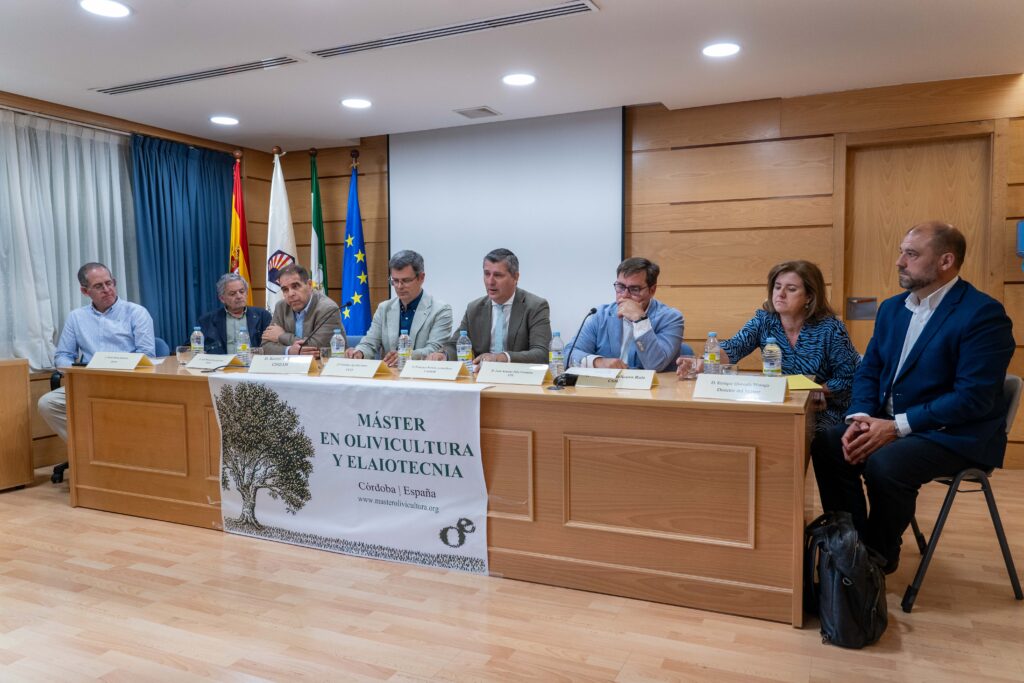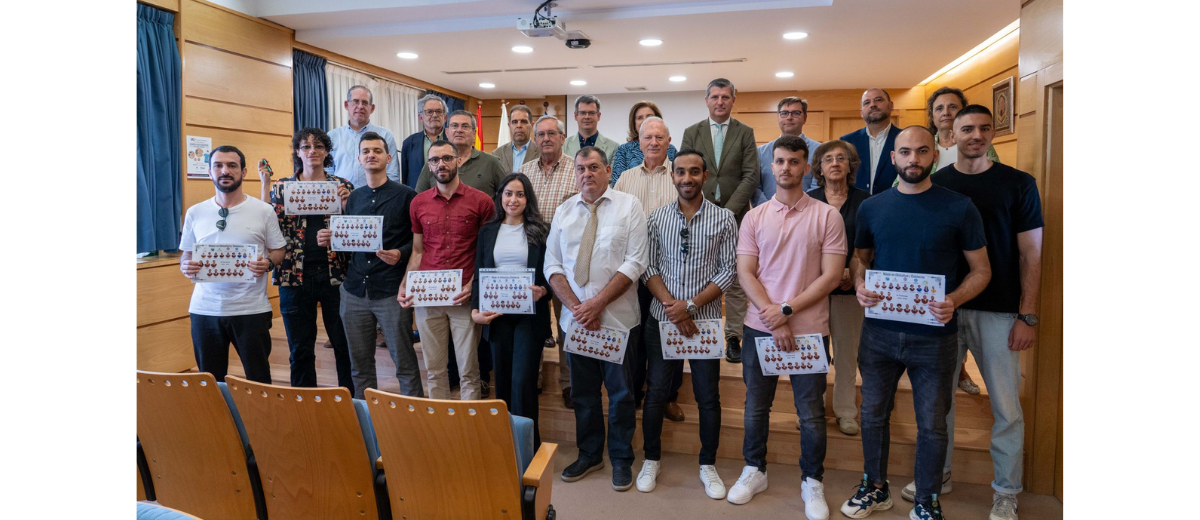Since 1995, the IOC has awarded scholarships to more than 70 students in this Master’s program.
The IOC was represented by Juan Antonio Polo Palomino, Head of its Olive Oil and Environment Department, at the closing ceremony of the fifteenth edition of the Master in Olive Growing and Olive Oil Technology at the University of Cordoba, which took place on May 28 in the auditorium of the University’s Rabanales campus, in the presence of 23 students of seven nationalities (Algeria, Egypt, Greece, Morocco, Portugal, Tunisia and Spain) who have completed their specialization course or one of its modules this year. Of these students, 4 received IOC scholarships to continue their studies: Mohand Amokrane Bouchabane (Algeria), Evangelos Mitropoulos (Greece), Ahmed Oujdi (Morocco) and Alexandre José de Melo Andrade Sousa (Portugal).
This biennial Master’s program, designed to meet the growing demand for top-level technical specialists in the olive sector, is organized by the University of Cordoba (UCO), the Ministry of Agriculture of the Autonomous Region of Andalusia, IFAPA (Instituto Andaluz de Investigación y Formación Agraria, Pesquera, Alimentaria y de la Producción Ecológica), CSIC (Consejo Superior de Investigaciones Científicas), the International Centre for Advanced Mediterranean Agronomic Studies (CIHEAM) in Zaragoza, the FPCO (Fundación Patrimonio Comunal Olivarero) and the IOC.
 Since its launch in 1995 , the course has been taken by 347 students from the following 25 countries: Spain (118), Algeria (51), Morocco (37), Tunisia (35), Portugal (20), Egypt (13), Türkiye (12), Albania (10), Argentina (9), Chile (9), Syria (7), Italy (5), Greece (4), Lebanon (3), Mexico (2), Syria (7), Italy (5), Greece (4), Lebanon (3), Mexico (2), Montenegro (2), Peru (2), Croatia (2), Belgium (1), Brazil (1), Iran (1), Palestine (1), Jordan (1), Libya (1) and Israel (1). Of these 347 students, over 70 have benefited from an IOC scholarship.
Since its launch in 1995 , the course has been taken by 347 students from the following 25 countries: Spain (118), Algeria (51), Morocco (37), Tunisia (35), Portugal (20), Egypt (13), Türkiye (12), Albania (10), Argentina (9), Chile (9), Syria (7), Italy (5), Greece (4), Lebanon (3), Mexico (2), Syria (7), Italy (5), Greece (4), Lebanon (3), Mexico (2), Montenegro (2), Peru (2), Croatia (2), Belgium (1), Brazil (1), Iran (1), Palestine (1), Jordan (1), Libya (1) and Israel (1). Of these 347 students, over 70 have benefited from an IOC scholarship.
At the graduation ceremony, the Head of the IOC’s Olive Oil and Environment Department recalled one of the main challenges facing the sector: “To produce more and better, sustainably, taking into account economic, environmental and social aspects”. He congratulated the students and encouraged them to be proud of having been trained “in the Silicon Valley of agriculture”.
As highlighted at the closing event, one of the main attractions of this Master’s degree is undoubtedly the excellence of its teaching staff, made up of professors from the UCO, the various collaborating organizations (IFAPA, CSIC, FPCO, AGAPA, Junta de Andalucía), the universities of Jaén, Málaga, Madrid and Seville, as well as leading companies in the sector.
The IOC regularly takes part in meetings of the Master’s executive committee. The first two meetings this year, held on January 23 and May 28, enabled the various stakeholders to discuss ways of modernizing, optimizing and adapting the Master to professional accreditation. The next meeting of this committee is scheduled for July 10.











